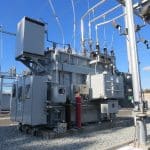Welcome, dear reader. As the winter months approach, you may find yourselves asking, “What are the most efficient ways to heat our home?” In this article, we will explore the various heating systems available, discussing their efficiency, cost-effectiveness, and overall performance. By understanding these different methods, you can make an informed decision about which is best for your specific needs.
Central Heating Systems
Central heating remains one of the most popular ways to heat a home. It provides a consistent level of warmth throughout the house, which can be crucial in maintaining a comfortable living environment during those colder months.
Sujet a lire : How to create a home gallery wall that reflects your personality?
A key component of most central heating systems is the furnace. Furnaces can run on different types of fuel, such as gas, oil, or electricity. Gas furnaces are among the most common, thanks to their general efficiency and lower operational costs compared to electric furnaces. By burning natural gas, they generate heat, which is then distributed through your home via ductwork.
Electric furnaces, while typically more expensive to operate due to the cost of electricity, have their benefits. They are often quieter, require less maintenance, and can be more efficient than gas furnaces, converting almost all energy used into heat.
Cela peut vous intéresser : What are the benefits of a living roof for urban homes?
While central heating systems generally provide reliable, whole-house heating, it’s important to note that their efficiency can be compromised by poor insulation or drafty windows and doors. Ensuring your home is well-sealed and insulated can significantly improve the efficiency of your central heating system.
Heat Pumps
If you’re looking for an energy-efficient alternative to traditional furnace-based systems, heat pumps might be the answer.
Heat pumps operate by transferring heat from one place to another, rather than generating it. During the colder months, they extract heat from the outside environment and bring it into your home. Conversely, in the summer, they can cool your home by moving heat from inside the house to the outdoors.
There are two main types of heat pumps: air-source and ground-source (also known as geothermal). Air-source heat pumps extract heat from the air, while ground-source models use the constant temperature of the earth as a heat source.
Heat pumps can be incredibly efficient, often more so than traditional heating systems, particularly in milder climates. However, they can struggle in extreme cold, making them less suitable for homes in colder regions without a backup heating system.
Radiant Heating Systems
Radiant heating is another efficient method of heating a home, providing a unique, comfortable warmth that many homeowners appreciate.
These systems work by directly heating the floors or panels in the walls or ceiling of a house, rather than heating the air. The heat then radiates out into the room, creating a consistent, even warmth.
Radiant heating systems can be powered by electricity, or by circulating heated water through tubes installed beneath the floor (hydronic heating). While the upfront cost can be higher than other heating methods, radiant systems can be more efficient and can reduce energy costs over time, as they often require less energy to maintain a comfortable temperature.
Solar Heating
In an age of increasing environmental awareness, solar heating presents an attractive, eco-friendly option for heating a home.
Solar heating systems harness the power of the sun to generate heat. These systems typically include solar panels, a heat transfer system, and a heat storage system. During the day, the panels collect solar energy, which is then converted into heat and distributed throughout the house.
While the upfront costs can be significant, solar heating can provide substantial savings over time, as the energy used is completely renewable and free. However, the effectiveness of solar heating will depend on the amount of sunlight your home receives, which can vary based on location and time of year.
Portable Heaters
While not suitable for heating an entire home, portable heaters can provide an efficient solution for heating individual rooms or spaces.
Electric space heaters are a popular choice, providing instant heat and flexibility in terms of placement. These devices are generally quite energy-efficient, particularly models equipped with thermostats, which automatically adjust the heat output to maintain a set temperature.
Infrared heaters are another portable option. These heaters work by emitting infrared light, which objects in the room absorb and convert into heat. This method can heat a room quickly and efficiently.
While portable heaters can be a cost-effective solution for supplemental heating, they should not be relied upon as a home’s primary heat source. Always remember to use these devices safely, keeping them away from flammable materials and turning them off when not in use.
When it comes to heating your home, there is no one-size-fits-all solution. By understanding the different systems available, you can make an informed decision that best suits the needs of your household, considering factors such as efficiency, cost, and climate. Stay warm!
Underfloor Heating Systems
Underfloor heating systems are another energy efficient method to heat your home. This type of heating system works by installing a series of electric wires or water pipes beneath the floor, which then heat up and radiate warmth upwards into the room. This creates a consistent and even heat distribution, which can provide a comfortable living environment, especially during the cold winter months.
Underfloor heating systems can be powered by various energy sources, including electricity, natural gas, or a combination of both. Electric underfloor heating systems are generally easier and cheaper to install, but they may be more costly to run in the long term. On the other hand, water-based systems, often referred to as hydronic systems, are more efficient and can be less expensive to run, especially if they are powered by a high efficiency boiler.
One of the key advantages of underfloor heating is its energy efficiency. Because these systems heat from the ground up, they can heat rooms more evenly and efficiently than some traditional heating systems, reducing the amount of energy required. Furthermore, they can be controlled using a thermostat, allowing you to adjust the temperature to your liking and further enhance the system’s efficiency.
However, it’s worth mentioning that the installation process for underfloor heating can be quite costly and disruptive, especially if you’re retro-fitting it to an existing home. Therefore, this heating solution may be best suited for new builds or during major home renovations.
Biomass Heating Systems
Biomass heating systems offer a sustainable and efficient way to heat your home. These systems use biological materials, such as wood pellets, agricultural residues, or dedicated energy crops, as fuel to generate heat.
Biomass heating systems are considered carbon-neutral, as the CO2 released during combustion is offset by the CO2 absorbed by the plants during their growth. This makes them a more environmentally friendly alternative to fossil fuel-based heating systems.
In terms of efficiency, modern biomass heating systems can be very effective. They use advanced combustion technologies and have high heat conversion efficiency rates, often reaching up to 90%.
While biomass heating systems can contribute to a more sustainable home heating, they do have some drawbacks. The cost and availability of biomass fuel can vary, and you’ll need sufficient storage space for the fuel. Additionally, these systems require regular maintenance to ensure they function optimally.
When it comes to home heating, there are numerous options to choose from, each with its pros and cons. It’s crucial to consider the size of your home, your location, and your budget before making a decision. Some systems, like heat pumps and solar heating, may require a larger upfront investment but can offer significant long-term savings thanks to their high energy efficiency. On the other hand, options like portable space heaters and electric furnaces could be less costly initially but may result in higher energy bills over time.
Remember, the most efficient heating system is the one that fits your home’s needs best. It’s worth consulting with a heating professional to help you assess your household’s needs and determine the most effective and cost-efficient way to heat your home. Stay warm and cozy, dear reader!











